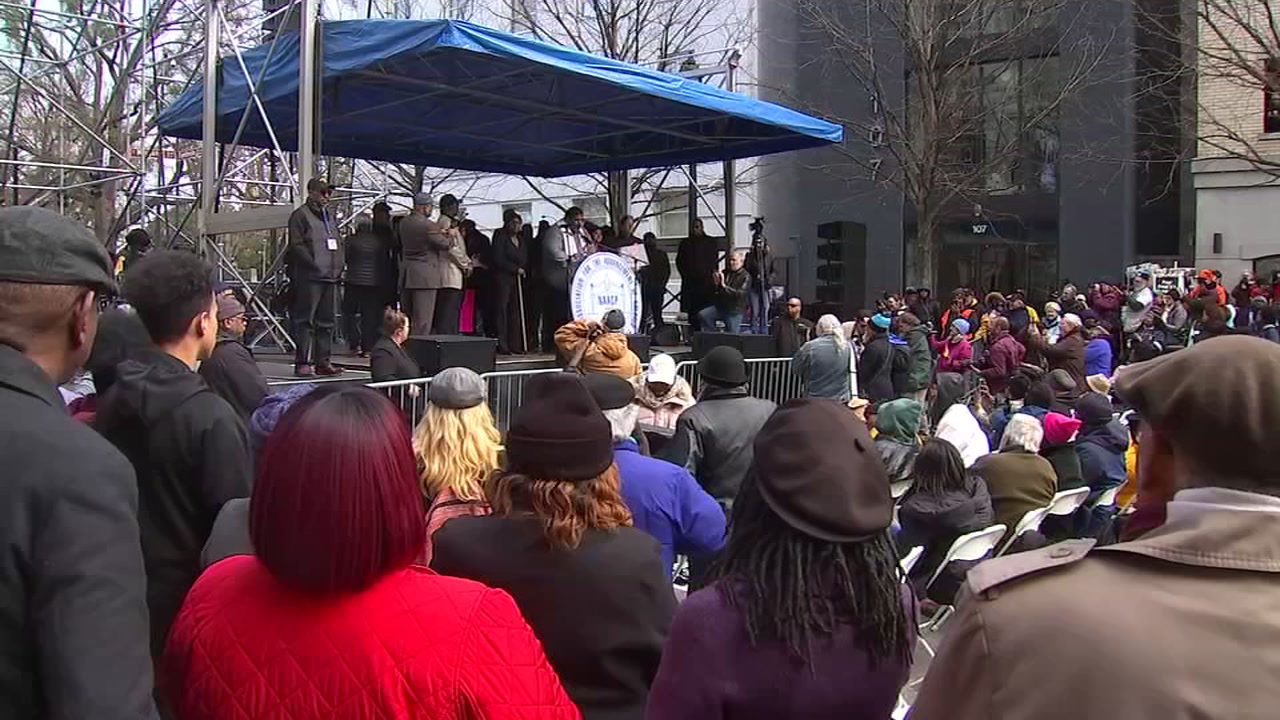The march, which happens each year on the second Saturday of February, was initially organized by Dr. William Barber when he was president of the North Carolina NAACP.
The group, affiliated with the Moral Monday Movement, typically spends several hours in front of the State Capitol talking about issues they say are not adequately addressed by state lawmakers.
[Ads /]
This year, Reverend T. Anthony Spearman, Barber's successor as state NAACP president, spoke for several minutes.
His voice rose with emotion as he challenged the crowd to continue advocating for marginalized communities and individuals who struggle to survive during a time when they lack adequate health care, access to well funded schools and an adequate minimum wage.
Spearman urged them to keep working to achieve "A day when women will no longer be sexualized, the elderly will not be marginalized, the transgendered won't be traumatized, and the children will not be victimized."
Barber spoke near the end of the rally and criticized the policies enacted by North Carolina's conservative legislative majority.
"They'll put trying to stop who somebody gets married to on the ballot. They'll put hanging the constitution in unconstitutional ways on the ballot," he said. "But they won't put living wages on the ballot. It's uncivilized!"
[Ads /]
When the rally wound down and the crowd dispersed down Fayetteville Street, some noticed two men carrying Confederate flags. Both engaged in vigorous debate with some rally participants, and their presence on the fringe of the crowd disturbed some observers.
"These guys with their confederate flags? They're only here to agitate us right now. Because we know we have to pay children no mind when they're acting up and that's what we're doing. Paying them no mind," said Stephanie Watson of the Harnett County NAACP.
Kendra Johnson wondered why the men chose this day to debate rally participants after they heard positive messages from a series of speakers. She said the years of activism are making a difference among the lawmakers on both sides of the aisle who convene on Jones Street.
"We'll continue to fight for voting rights, and we'll continue to fight for unity," said Johnson. "That's the reality. I think there's been change in the awareness, and the awareness is what starts movements of liberation. "

